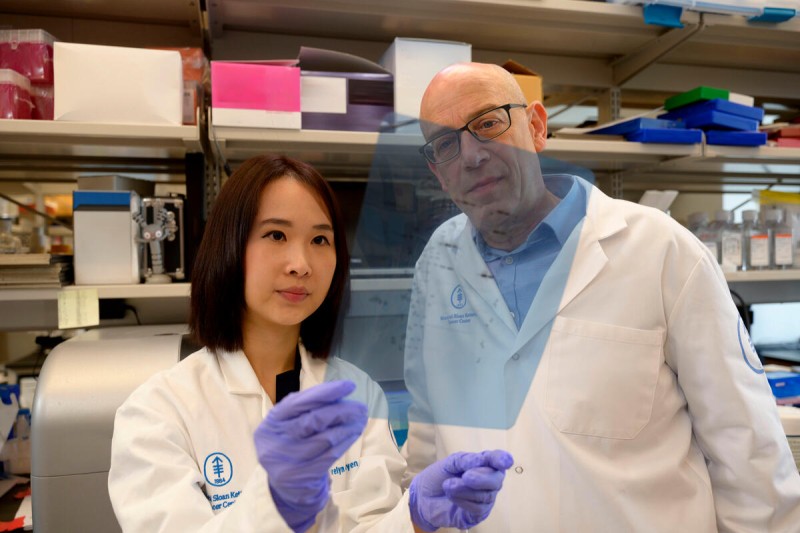
Charles Rudin, MD, PhD and GSK Graduate Student Evelyn Nguyen reviewing protein expression on a Western blot film.
GSK’s innovative program in Cancer Biology educates students about the fundamentals of biomedical sciences while providing a deep understanding of today’s clinical challenges in developing new treatments for cancer. Joining the program offers you the unique opportunity to train alongside some of the world’s leading basic scientists and clinical researchers in a small-group, hands-on environment.
“The Cancer Biology program is truly exceptional, allowing students to pursue discovery and translational science across the breadth of cancer science, with outstanding mentors, colleagues, and institutional resources,” says leukemia specialist and physician-scientist Ross L. Levine, MD. “There is no better place to study cancer biology.”
GSK offers more than 130 faculty members who are internationally recognized in their fields, including cancer biology, genomics, immunology, and structural biology. They are devoted to making sure students get the best and most relevant experience possible.
Our highly competitive program features class sizes of up to 12 students and a 10-to-1 faculty-to-student ratio.
“I treasure the fact that you can have conversations about your research with such incredible scientists on a relaxed basis and think about the possibilities and outcomes,” says Klavdija Bastl about her first year as a GSK student. “It makes it easier to ask questions and have helpful exchanges directly with the professors, who encourage you to think critically, develop your skills, and make new discoveries in a supportive and collaborative environment.”
All students enter the Cancer Biology PhD program without a formal commitment to a particular laboratory. This allows our students the flexibility to explore potential research mentors, participate in the first-year curriculum, and learn about new areas of research through meetings with the faculty.
“Each one of us is committed to offering the personal attention, mentorship, and opportunities for professional development that students need to plan for a successful and fulfilling career in the biomedical sciences, wherever they want to go next — whether it be academia, industry, business, or government,” says GSK Dean Michael Overholtzer.
By the end of their first year, students confirm their thesis topic and prepare to begin their full-time dissertation research in year two of the program. They also participate in a clinical apprenticeship, which is intended to give them perspective on how bench work can be applied in the clinic.
The translational impact of their work is often a key reason why students choose to pursue their doctorate at GSK.
“The GSK program aims to equip students with a profound understanding of fundamental biology and adeptness in rigorous research,” says molecular biologist Xiaolan Zhao. “Students’ deep understanding of the inner workings of the cell will pave the way for future innovations in cancer treatment.”